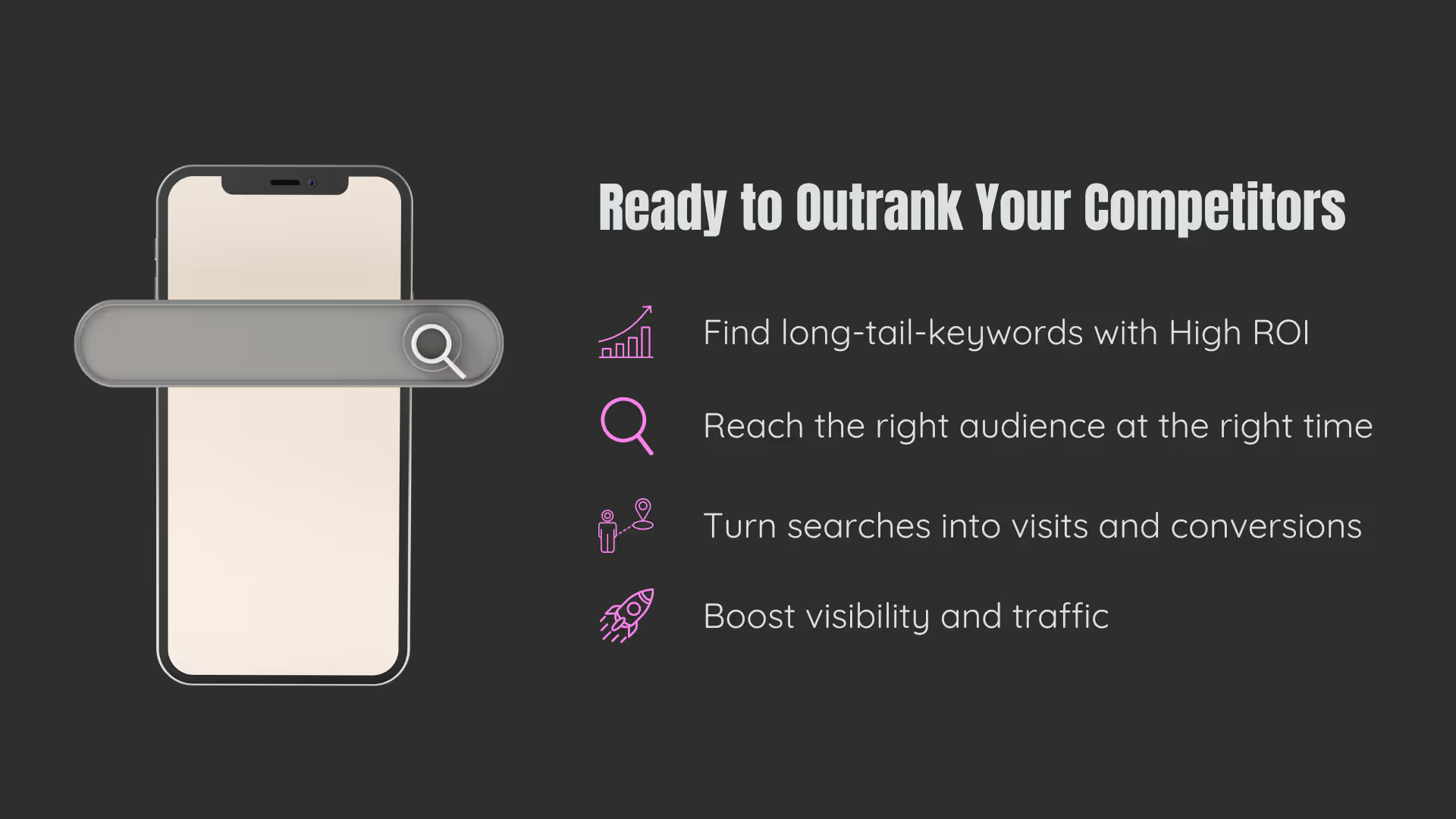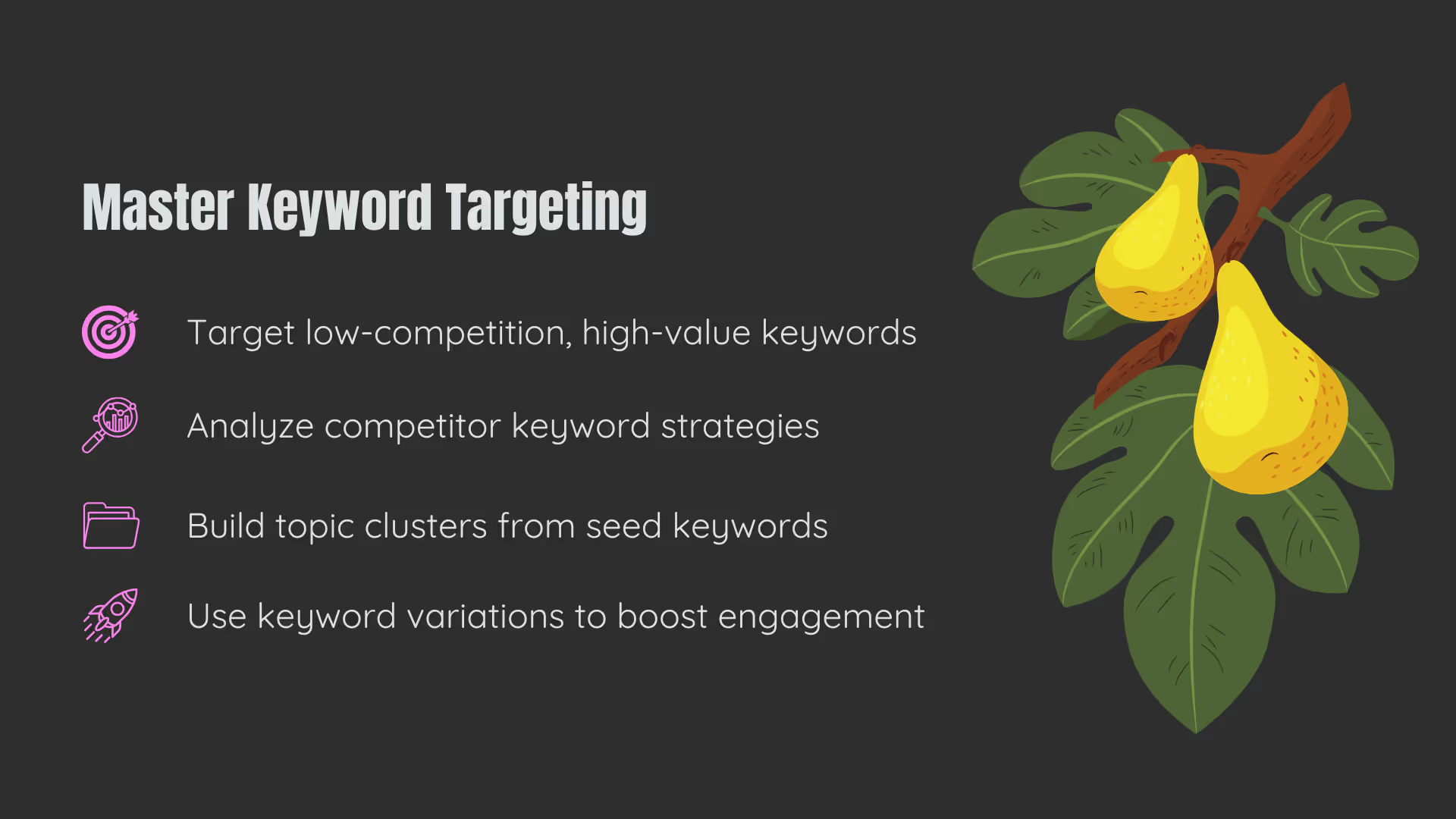


Keywords are specific words or phrases that users enter into search engines when looking for information, products, or services. In the context of search engine optimization (SEO) and pay-per-click (PPC) advertising, keywords form the foundation of your digital strategy. They connect what people are searching for with the content you offer on your website.
Effective use of keywords helps your website appear in relevant search results, driving targeted traffic to your site. For SEO, the right keywords position your content so search engines can match it with user intent. In PPC, intelligent keyword selection ensures your ads reach the audiences most likely to convert, maximizing your advertising spend. Without keywords, your website may remain invisible to potential customers.
SEO keywords are terms and phrases you want your website to rank for in organic search results. PPC keywords, on the other hand, are used in paid ad campaigns. While there can be overlap, PPC typically focuses on more transactional queries because advertisers are charged per click and want higher conversion rates. Successful digital strategies often integrate both organic and paid keyword targeting for broader reach and impact.
Search intent, or the reason behind a user’s search, guides effective keyword selection. The main types of search intent include:
Aligning keywords with each search intent, especially when implementing local SEO strategies, ensures your content appears for queries most relevant to your business goals.

Keyword research tools help identify popular search terms, evaluate competition, and discover opportunities. Common tools include Google Keyword Planner, SEMrush, Ahrefs, and Moz Keyword Explorer. These tools provide valuable data to inform your keyword strategy.
Keyword tools offer insights such as search volume, keyword difficulty, competition, and related terms. Use this data to:
Strategic keyword selection based on data maximizes your content’s visibility and effectiveness.
Not all keywords are equally difficult to rank for. Targeting “low-hanging fruit”—keywords with reasonable search volume and low competition, gives your website a better chance to achieve page one rankings. These often include long-tail keywords or niche-specific phrases.

Analyzing competitors provides insight into which keywords drive their traffic and what gaps exist in their strategies. Use tools like Ahrefs’ competitor analysis guide to compare their top-performing keywords, assess their content, and identify opportunities to differentiate your own keyword targeting.
Seed keywords are broad terms related to your main topic (e.g., “SEO” or “digital marketing”). They serve as starting points for brainstorming additional, more specific keywords and topics. Grouping these related keywords into content clusters helps organize your website, making it easier for both users and search engines to navigate and understand your offerings.
Strategically using seed keywords and their variants in your content helps address a wider range of queries and user needs. This approach not only improves your chances of ranking for more searches but also delivers a comprehensive user experience that can boost engagement and retention.
By understanding the importance of keywords, how to research them, and how to leverage seed keywords to build rich content, your website can attract the right audience and achieve lasting online visibility. Use keyword research tools, analyze competitors, align keywords with search intent, and continually update your strategy for the best results in both SEO and PPC.
Ready to boost your website’s visibility and attract the right audience? At KeKu Design, we help businesses master SEO and grow online. Book your free discovery call today and let’s get your keyword strategy on the right track!